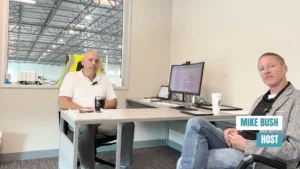Where Bike-Sharing Fits into Post-COVID Transit
On this episode of MarketScale Live, host and Voice of B2B Daniel Litwin was joined by Francesco Cerroni, Associate Mobility Leader at Buro Happold.
Buro Happold is an international consultancy of engineers, consultants and advisers with a stated mission of “delivering creative, value-led solutions for an ever-challenging world.”
Cerroni and Litwin dove into the state of consumer transportation, particularly bikesharing, e-scooters and ridesharing, during the COVID-19 pandemic.
Prior to the pandemic, Cerroni said the rise in bikesharing and other forms of mobility was likely driven by trends exhibited by Millennials.
“There’s a tendency to reduce the importance of ownership, especially car ownership,” he said. “For the previous generation, that was such an important aspect of their life. … At the same time, Millennials are used to a different type of economy that is more precarious and fragile. Therefore, buying a car becomes more difficult.”
In addition, Cerroni said Millennials are more interested in sustainability, urban life, the experience economy and the sharing economy, all of which can play into a willingness to leverage shared mobility.
In the midst of the pandemic, Cerroni said the current trends might be surprising – in New York City, Beijing and other urban locations, bikesharing numbers are actually trending upward. This could be for a variety of reasons, including an unwillingness to use traditional public transportation.
While these urban hotspots have seen bikesharing usage, the United States, as a whole, is stagnating. Cerroni said he believes Americans’ higher rates of private vehicle usage are a significant factor in this trend.
Follow us on social media for the latest updates in B2B!
Twitter – @MarketScale
Facebook – facebook.com/marketscale
LinkedIn – linkedin.com/company/marketscale








